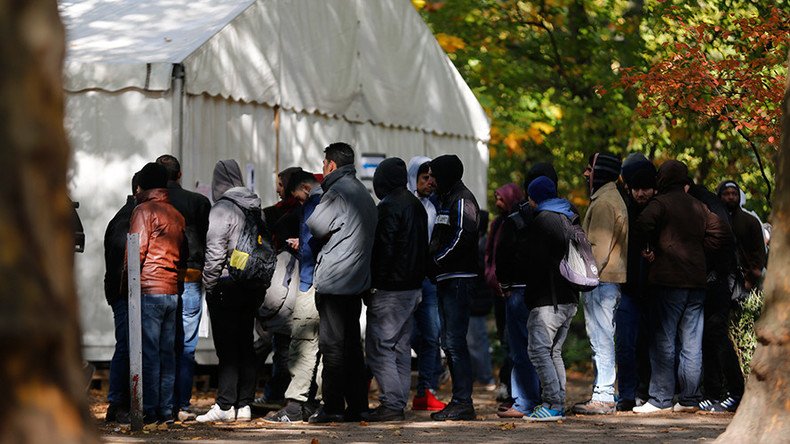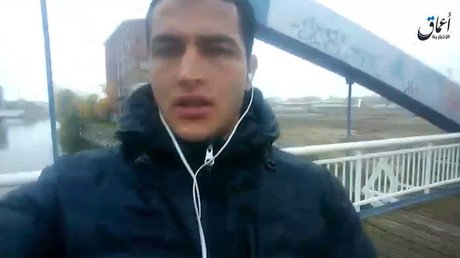‘Massive encroachment on privacy’: German MPs pass stringent new rules for asylum seekers

German MPs have agreed measures to "improve enforcement of deportation rulings," including allowing immigration officials to monitor refugees’ cell phone data and speed up deportations. Human rights activists slammed the new rules as a violation of privacy.
The steps were green-lighted by the German parliament, the Bundestag, late on Thursday. The regulations envision that any rejected asylum seekers deemed to be a security threat can be detained for up to 10 days, compared to four previously, while awaiting deportation. It will also be made easier for the authorities to monitor selected refugees with electronic ankle bracelets.
Any asylum seekers who are not granted permission to remain and who fail to leave Germany voluntarily, as well as those who give false information about their identities, will be limited in their freedom of movement, DPA news agency reported, citing the document agreed by MPs.
Asylum seekers that are considered to have a low chance of their requests being approved could be obliged to stay at the facilities where they were first registered as their case is being reviewed, the ruling says.
The Federal Office for Migration and Refugees (BAMF) will also be allowed to monitor and assess the cell phone data of migrants who arrive without documents, in order to clarify their identity. The agency will be granted the right to share data, such as medical reports, with other authorities.
German Interior Minister Thomas de Maiziere said the latest set of measures shows that the government has a “clear line” which seeks to help those who really need protection. However, refugees who face no danger in their home countries and in particular those “who deceive, trick and [commit] crimes” should be deported, he said.
The decision by the German parliament did not go down well with rights groups and opposition parties, who said the strict new rules infringe on the fundamental rights of vulnerable people seeking protection.
"This law transforms Germany from being a host country into one focused on deportation," German refugee aid organization, Pro Asyl, said, as quoted by DPA.
Amnesty International called the reform a massive infringement on fundamental rights.
"The Federal Government is dismantling several legal hurdles that have been meant to protect people against disproportionate detention," said Maria Scharlau, a Germany-based international lawyer at Amnesty.
Rules regarding free access to asylum seekers’ smartphones demonstrate "massive encroachments on the privacy of tens of thousands of people,” Scharlau stressed.
The measures are said to be a reaction to December's Christmas market attack in Berlin by the rejected asylum seeker Anis Amri, who plowed a truck into a crowd of people, killing 12.
The Tunisian had been classified as a potential threat to public safety in February 2016, but the authorities failed to collect evidence against him that would stand in court. Seven separate probes targeting Amri had been conducted by the German authorities, but they could not reach a consensus on whether he was a terrorist threat.
Amri received orders directly from the main organizer of Islamic State’s (IS, formerly ISIS/ISIL) “external operations,” Abu Baraa al-Iraki, Der Spiegel reported last month.
Amri, 24, managed to escape Germany following the attack, but was eventually killed in a shootout with Italian police in Milan on December 23, after successfully crossing the borders of Germany, France and Italy.














